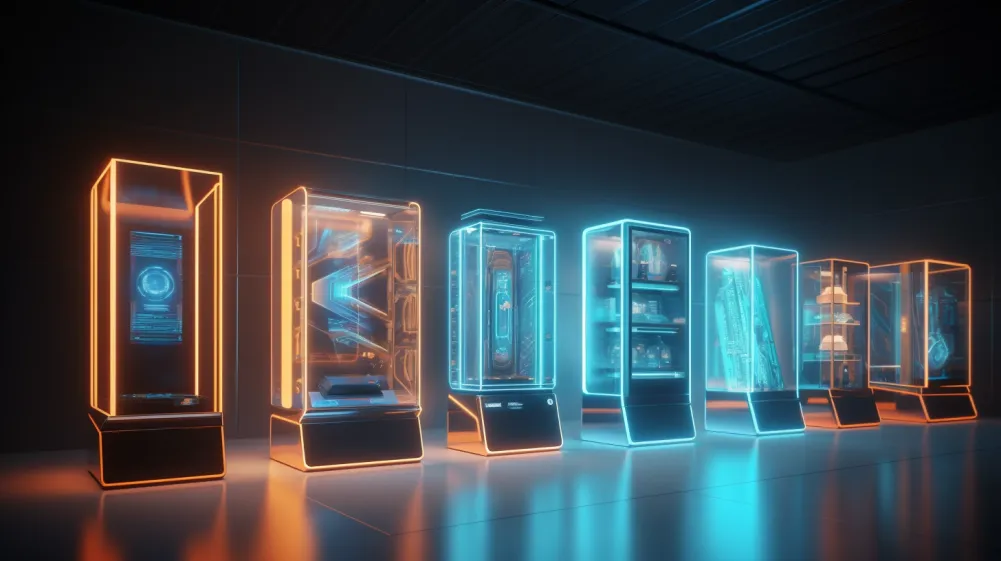Non-fungible tokens (NFTs) have taken the digital world by storm, making a significant impact on a wide range of industries. As unique digital assets backed by blockchain technology, NFTs represent ownership and authenticity of digital or physical items, such as art, collectibles, virtual real estate, and even tweets.
The unprecedented growth and popularity of NFTs have opened doors to innovative business ideas and opportunities, capturing the attention of artists, creators, investors, and entrepreneurs alike.
One key factor contributing to the rapid expansion of the NFT ecosystem is the increasing interest in token gated experiences. These experiences involve the use of NFTs to grant exclusive access to premium content, events, or services to token holders, thereby fostering stronger connections between creators and their audience. This innovative approach allows creators to monetize their work more effectively while providing unique and personalized experiences to their fans.
In this article, we will explore ten future innovations in the NFT business landscape, delving into the potential of fractional NFT ownership, NFT-based royalties, real estate, fashion, gaming, digital identity verification, film, music, decentralized finance (DeFi) applications, and niche marketplaces.
By examining these innovations, we aim to provide a comprehensive understanding of the growing potential of NFTs and inspire entrepreneurs to seize the opportunities in this burgeoning market.
10 Future Innovations in NFT Business
In this rapidly evolving digital landscape, the world of non-fungible tokens (NFTs) has emerged as a transformative force, offering boundless opportunities for creative entrepreneurs and innovative business models.
From fractional NFT ownership to niche marketplaces, these innovations showcase the immense potential of NFTs to reshape our digital experiences and unlock new value across various sectors.
Fractional NFT ownership
Fractional NFT ownership is an emerging concept that allows multiple individuals to own a portion of a single NFT, making high-value digital assets more accessible and liquid. This innovative approach democratizes the NFT market by enabling smaller investors to participate in the ownership of expensive and sought-after NFTs without bearing the entire cost.
Fractional ownership can also promote the decentralization of digital asset ownership and foster new opportunities for creators and collectors, such as co-ownership of virtual real estate or participation in revenue-sharing models for digital art.
NFT-based royalties
NFT-based royalties have the potential to revolutionize the way artists and creators are compensated for their work. By embedding royalty payment mechanisms into NFT smart contracts, artists can automatically receive a percentage of the sale price each time their digital asset is resold in the secondary market.
This innovative model offers a sustainable and recurring revenue stream for creators, incentivizing them to produce more high-quality content while providing collectors with the assurance that they are supporting the artists directly.
NFTs in real estate
NFTs are poised to disrupt the real estate industry by enabling the tokenization of property ownership, simplifying the buying and selling process, and reducing transaction costs. By representing physical properties as unique digital tokens, NFTs can facilitate fractional ownership of real estate, allowing investors to purchase shares in a property without bearing the entire cost.
Additionally, NFTs can streamline property transfers by eliminating the need for intermediaries, such as brokers or lawyers, and automating the verification of property titles through blockchain technology.
NFTs in the fashion industry
NFTs have the potential to revolutionize the fashion industry by offering a new way for designers to monetize their creations and enhance the exclusivity of their products. By tokenizing fashion items as unique digital assets, designers can create limited-edition virtual garments that can be traded, collected, and even worn in virtual environments like metaverses.
Additionally, NFTs can be used to prove the authenticity and ownership of physical fashion items, combating counterfeiting and providing customers with a secure way to verify the provenance of their purchases.
NFT gaming platforms
The gaming industry is poised to benefit immensely from NFT technology, as it enables the creation of unique, tradable in-game assets that players can own and use across different gaming platforms. NFTs can represent in-game items like skins, weapons, and virtual real estate, allowing players to buy, sell, and trade these digital assets in secondary markets.
This innovation not only enhances the gaming experience by introducing an element of digital scarcity but also offers new revenue streams for game developers and encourages player engagement and retention.
NFTs for digital identity verification
NFTs can play a crucial role in digital identity verification by providing a secure and decentralized method for individuals to prove their identity online. By representing personal identity data as unique, non-fungible tokens, users can control access to their information and share it with trusted parties when necessary.
This innovation can streamline various identity-related processes, such as KYC (Know Your Customer) procedures, while enhancing data privacy and security by leveraging blockchain technology.
NFTs in the film industry
NFTs have the potential to transform the film industry by offering new ways to monetize, distribute, and promote movies and related content. Filmmakers can tokenize film rights, behind-the-scenes content, or exclusive merchandise as NFTs, giving fans unique collectibles and providing an additional revenue stream for creators.
Moreover, NFTs can serve as digital tickets for film screenings or streaming access, ensuring secure and traceable distribution. They can also be used to reward loyal fans, incentivizing engagement and fostering a sense of community around a film project.
NFTs in the music industry
The music industry stands to benefit significantly from NFTs, as they provide artists with new avenues for monetizing their work, engaging with fans, and maintaining control over their intellectual property. Musicians can tokenize their songs, album covers, or exclusive behind-the-scenes content as NFTs, offering collectors unique and scarce digital assets.
Furthermore, NFTs can be utilized to create innovative revenue-sharing models, allowing artists to receive royalties directly through smart contracts whenever their music is bought, sold, or streamed. This can help artists maintain control over their work, even when it changes hands, and ensure they are fairly compensated for their efforts.
NFT-based decentralized finance (DeFi) applications
NFTs can also play a significant role in the rapidly expanding world of decentralized finance (DeFi). By tokenizing real-world assets like stocks, bonds, and real estate as NFTs, they can be easily integrated into DeFi platforms, enabling users to borrow, lend, or trade these assets in a decentralized manner.
Additionally, NFTs can be used as collateral for loans in DeFi platforms, providing users with a way to leverage their digital asset holdings to access liquidity. This fusion of NFTs and DeFi can unlock new financial opportunities and services for individuals and businesses alike.
NFT marketplaces for specific niches
The proliferation of NFTs has led to the creation of specialized marketplaces that cater to specific niches within the broader NFT ecosystem. These marketplaces offer a curated selection of NFTs related to a particular theme or industry, such as sports, gaming, art, or fashion.
By focusing on a specific niche, these marketplaces can attract a dedicated audience with shared interests, facilitating the discovery of relevant NFTs and promoting a sense of community among users.

The role of innovation in shaping the future of the NFT industry
Innovation is the driving force behind the rapid evolution and expansion of the NFT industry. As creative entrepreneurs continue to explore new applications for NFTs, they are not only transforming existing industries but also paving the way for entirely new business models and opportunities.
The NFT market’s future is likely to be characterized by ongoing experimentation, resulting in the development of novel use cases that further enhance the utility, value, and appeal of NFTs. This constant push for innovation will fuel the growth of the NFT ecosystem and contribute to its long-term sustainability.
As technology advances, NFTs are expected to become more accessible, efficient, and versatile, making it even more attractive for businesses and individuals to participate in this digital frontier.
For example, improvements in blockchain scalability will help accommodate the growing number of NFT transactions, while advances in smart contract functionality will enable more sophisticated and customizable NFT-based applications.
Moreover, collaborations between various stakeholders within the NFT ecosystem, including artists, developers, collectors, and investors, will foster the exchange of ideas and expertise, leading to new and exciting innovations. This collaborative spirit will be instrumental in driving the NFT industry forward and unlocking its full potential.
Encouragement for entrepreneurs to explore NFT based business opportunities
As the NFT landscape continues to evolve, entrepreneurs should seize the opportunity to explore and develop NFT-based business ideas that leverage the unique properties of this emerging technology.
By staying abreast of the latest trends and innovations in the NFT space, entrepreneurs can identify promising opportunities and capitalize on the growing demand for digital assets and experiences.
The potential for NFTs to reshape industries and create new markets is vast, and those who embrace this technology early will be well-positioned to thrive in the coming years.
Entrepreneurs can start by investigating existing NFT use cases and identifying areas where NFTs could bring added value or disrupt traditional business models. This could involve exploring the potential for NFTs to enhance customer engagement, facilitate secure transactions, or enable new revenue streams through digital asset monetization.
Additionally, entrepreneurs should consider building a network within the NFT community by attending industry events, participating in online forums, and collaborating with other innovators in the space. This will help them gain valuable insights, feedback, and support as they develop and refine their NFT-based business ideas.






